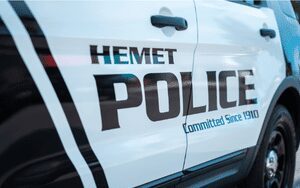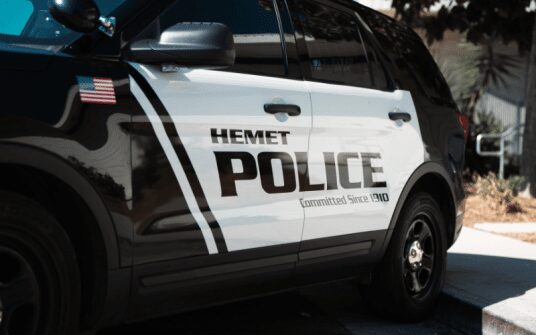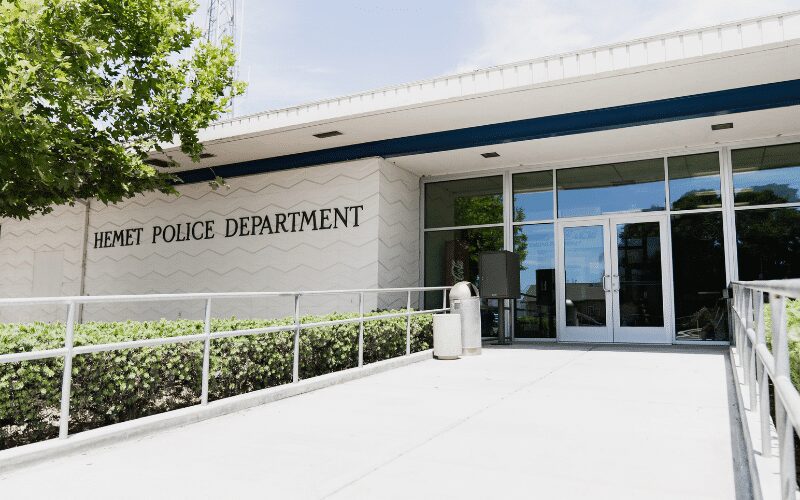CPTED Evaluations
We offer free CPTED evaluations to our businesses and multi-housing areas.
Crime Prevention Through Environmental Design (CPTED) is a multi-disciplinary approach of crime prevention that uses urban and architectural design and the management of built and natural environments. CPTED strategies aim to reduce victimization, deter offender decisions that precede criminal acts, and build a sense of community among inhabitants so they can gain territorial control of areas, reduce crime, and minimize fear of crime. CPTED is pronounced ‘sep-ted’ and is also known worldwide as Designing Out Crime, defensible space, and other similar terms.
There are four main principles of Crime Prevention Through Environmental Design (CPTED):
- ^Natural Surveillance
- ^Natural Access Control
- ^Territorial Reinforcement
- ^Maintenance and Management
Natural Surveillance
- Criminals do not want to be seen
- The primary aim of natural surveillance is to keep intruders under observation.
Natural Access Control
- Natural access control relies on doors, fences, shrubs, and other physical elements to keep unauthorized persons out of a particular place.
Territorial Reinforcement
- People naturally protect a territory that they feel is their own. Good maintenance and landscaping are ways to express ownership.
Maintenance & Management
The more dilapidated an area, the more likely it is to attract unwanted activities. The maintenance and the ‘image’ of an area can have a major impact on whether it will become targeted. Helpful tips include:
- Keep trees and shrubs trimmed back from windows, doors and walkways. Keep shrubs trimmed to three feet and prune lower branches of trees up to six feet to maintain clear visibility.
- Use exterior lighting at night and keep it in working order.
- Maintain signs, fencing, and report and remove graffiti promptly.
- Maintain parking areas to high standards without potholes or trash.
- Interaction between neighbors is vital to the awareness of persons and activities in the area. Management may need to create opportunities for neighbors to get to know one another.
To schedule a CPTED evaluation, call dispatch at (951) 765-2400 and ask to speak with the ROCS supervisor.
Trespass Letter of Consent Program
A Trespass Letter of Consent (TLC) is a document that allows a police officer to take trespass enforcement action on your behalf after normal business hours without first contacting you. Police Officers do not normally have the authority to go onto private property, which is not open to the public, and remove individuals or request they leave the property. The consent or authority of the property owner or manager is needed. If an officer observes someone on private property when the business is closed or a problem is reported by someone who does not have the authority to sign a trespass complaint, the Hemet Police Department must first contact the person who is legally responsible for the property before taking any arrest action.
A Trespass Letter of Consent (TLC) gives Hemet Police Officers permission to act on behalf of the property owner or manager in trespass situations, even if immediate contact with the property owner is not possible.
The following types of Property Qualify for the TLC Program:
- ^Commercial Property
Commercial Property
- Owner and occupant of a commercial property
- Non-occupant owner of commercial property and acts as the property manager.
- Owner of a vacant commercial property.
- The commercial property manager or person responsible for the property.
- The person responsible for a property under construction (Note: The property must have an assigned street address).
Complete The Form
By completing and signing the Trespass Letter of Consent, you are identifying yourself as the responsible party for the property and designate each and every police officer employed by the City of Hemet as your agent and representative for the purpose of enforcing trespass violations on your property as outlined in the California Penal Code Section 602.
In addition to your Trespass Letter of Consent, your property must be posted with signs stating “No Trespassing” and must reference California Penal Code 602. Do not add any other verbiage to the sign.
Click below to fill out a Trespass Arrest Authorization Letter
Frequently Asked Questions
Does participating in the TLC Program mean that my property receives extra patrol?
No. Your signed consent authorizes officers to take trespass enforcement action on your behalf. For example, the Hemet Police Department must first be notified of the situation by a neighbor or concerned citizen to respond to the scene.
What happens if you arrest someone based on my signed letter?
In some cases, officers can resolve trespass complaints without arresting the involved subject. However, there are situations where the officer has no choice but to cite or arrest an alleged offender. You will be expected to participate in any resulting legal action in those instances.
What happens if I change my mind or sell my property?
If the status of your property changes in any way, you must notify the police department as soon as possible and arrange for your trespass letter of consent to be updated or removed from our files.
How do I renew my TLC?
The TLC expires 12 months from the first day of the month the authorization was granted. It is the property owner’s responsibility to submit a renewal application letter.
Online Reporting:
Businesses and citizens can report past crimes through our online system without having to wait for an officer. Eligible types of reports: harassing phone calls, hit and run, lost property, shoplifting, theft, vandalism, vehicle burglary, and vehicle tampering.
IMPORTANT: The online reporting system is a great tool for past crimes that do not have suspect information, but it is important to note that these reports are for documentation only – no further follow up or investigation will be conducted. If the victim would like an officer to follow up with their case, they will need to report to an officer by calling (951)765-2400.
The online system can be accessed by clicking below:













